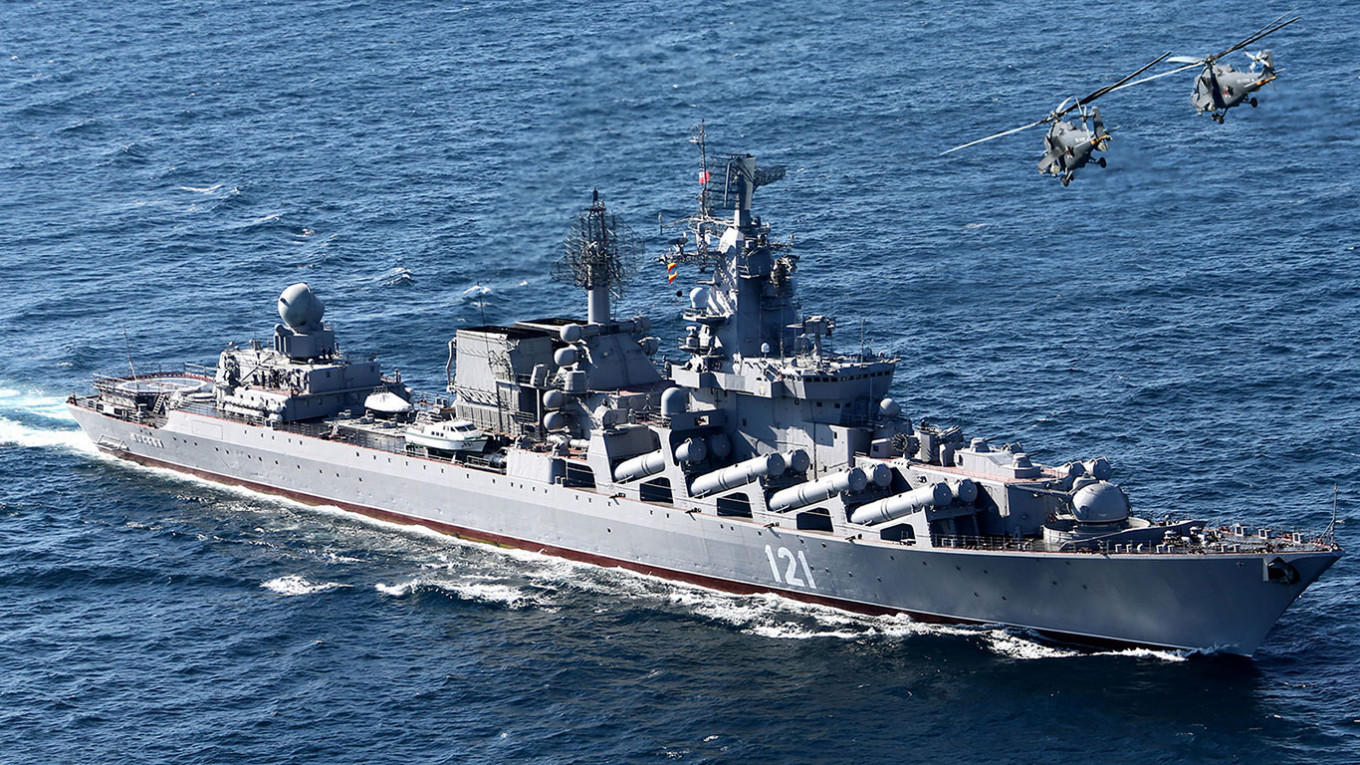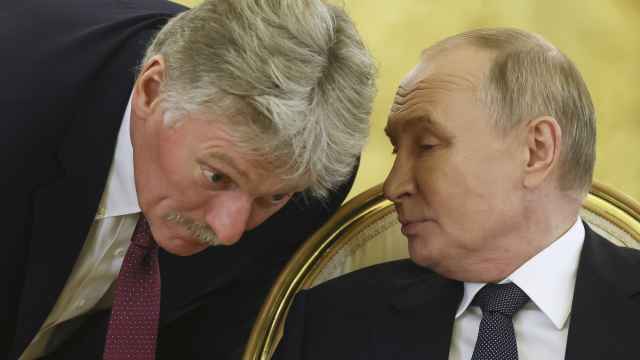This story was updated at 10:12 a.m. on Friday to add that the ship had sunk.
The sinking of Russia’s Moskva missile cruiser off the Ukrainian coast is not only a symbolic blow to Russian military power, but may have major consequences for the ongoing invasion, according to analysts.
“Russia has lost a significant part of its naval capability in the Black Sea, and its ability to hit targets in Ukraine,” said independent military analyst Pavel Luzhin.
The details of an explosion onboard the flagship of Russia’s Black Sea fleet late Wednesday remain unclear, with Russian officials claiming onboard ammunition exploded and caused a large fire, and Ukrainian officials saying its forces successfully targeted the Moskva with Neptune anti-ship missiles.
Russia officials initially said the ship remained afloat and a salvage attempt was underway, but the Defense Ministry admitted late Thursday that the Moskva had sunk in the choppy waters of the Black Sea.
The 186-meter-long vessel is the third-largest in Russia’s active fleet, and crucial to Russian naval power. The only Russian warship capable of carrying nuclear weapons, the Moskva is one of three Soviet-era “Slava”-class guided missile cruisers.
Since Russia launched its attack on neighboring Ukraine in February, the 12,500-ton Moskva has been used as a crucial store of defensive weapons and air defense missiles, as well as a hub for coordinating naval attacks, according to experts.
The Moskva gained notoriety in the early days of Russia’s military campaign, when it radioed Ukrainian border guards on Snake Island in the Black Sea, urging them to surrender. “Russian warship, go f*** yourself,” the Ukrainian defenders replied, a phrase that has been widely repeated and became a symbol of Ukrainian resistance to Russian aggression.
The warship carries 16 P-1000 Vulkan cruise missiles, which have a 700-kilometer range and are designed to destroy other warships, but can also be used against ground targets. It also carries an array of anti-submarine and mine-torpedo weapons.
“In the history of the modern Russian Navy, there are ships that not only embody the sea but also the power of the state. The flagship of the Black Sea Fleet… is just that ship,” wrote Russian military equipment publication Military Arms in 2017.
The Moskva was laid down by the Soviet Union as part of an effort to build a new class of guided missile cruisers following changes to modern warfare in the Vietnam War.
Only three of ten planned Slava-class warships were completed. Six were never begun, or dismantled when the Soviet Union collapsed. And a final one, called “Ukraina,” still sits unfinished in the shipyards in the Ukrainian city of Mykolaiv.
Since it entered service in the 1980s, the Moskva has seen action off the coast of Georgia during the Russian attack on the South Caucasus nation in 2008, as well as during Russia’s military campaign in Syria, where it aided regime forces with its air-defense systems.
Russian President Vladimir Putin has visited the Moskva several times. Shortly after becoming president in 2000, Putin toured the vessel with then-Ukrainian President Leonid Kuchma while it was docked in the Crimean port of Sevastopol.
Putin was informed about the damage to the vessel, Kremlin spokesperson Dmitry Peskov told state-owned news agency TASS on Thursday.
The 510-man crew of the Moskva successfully evacuated after the ship was initially damaged, according to the Russian Defense Ministry.
The loss of the Moskva will likely restrict the sort of military operations Russia is capable of launching in southern Ukraine, including a possible attack on the port city of Odessa.
“Without the Moskva, it would seem that a marine operation against Odessa or Mykolaiv is impossible right now,” said Luzhin.
A Message from The Moscow Times:
Dear readers,
We are facing unprecedented challenges. Russia's Prosecutor General's Office has designated The Moscow Times as an "undesirable" organization, criminalizing our work and putting our staff at risk of prosecution. This follows our earlier unjust labeling as a "foreign agent."
These actions are direct attempts to silence independent journalism in Russia. The authorities claim our work "discredits the decisions of the Russian leadership." We see things differently: we strive to provide accurate, unbiased reporting on Russia.
We, the journalists of The Moscow Times, refuse to be silenced. But to continue our work, we need your help.
Your support, no matter how small, makes a world of difference. If you can, please support us monthly starting from just $2. It's quick to set up, and every contribution makes a significant impact.
By supporting The Moscow Times, you're defending open, independent journalism in the face of repression. Thank you for standing with us.
Remind me later.







